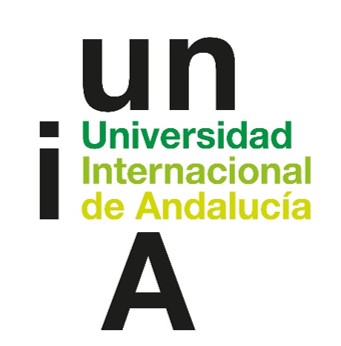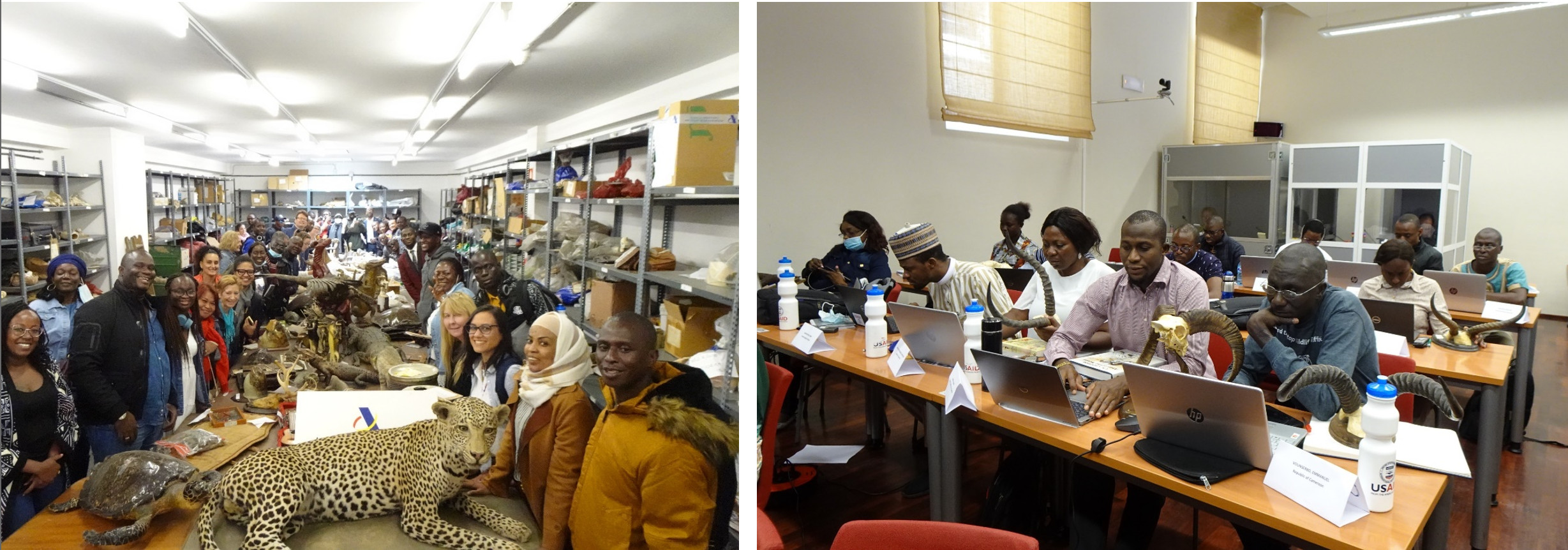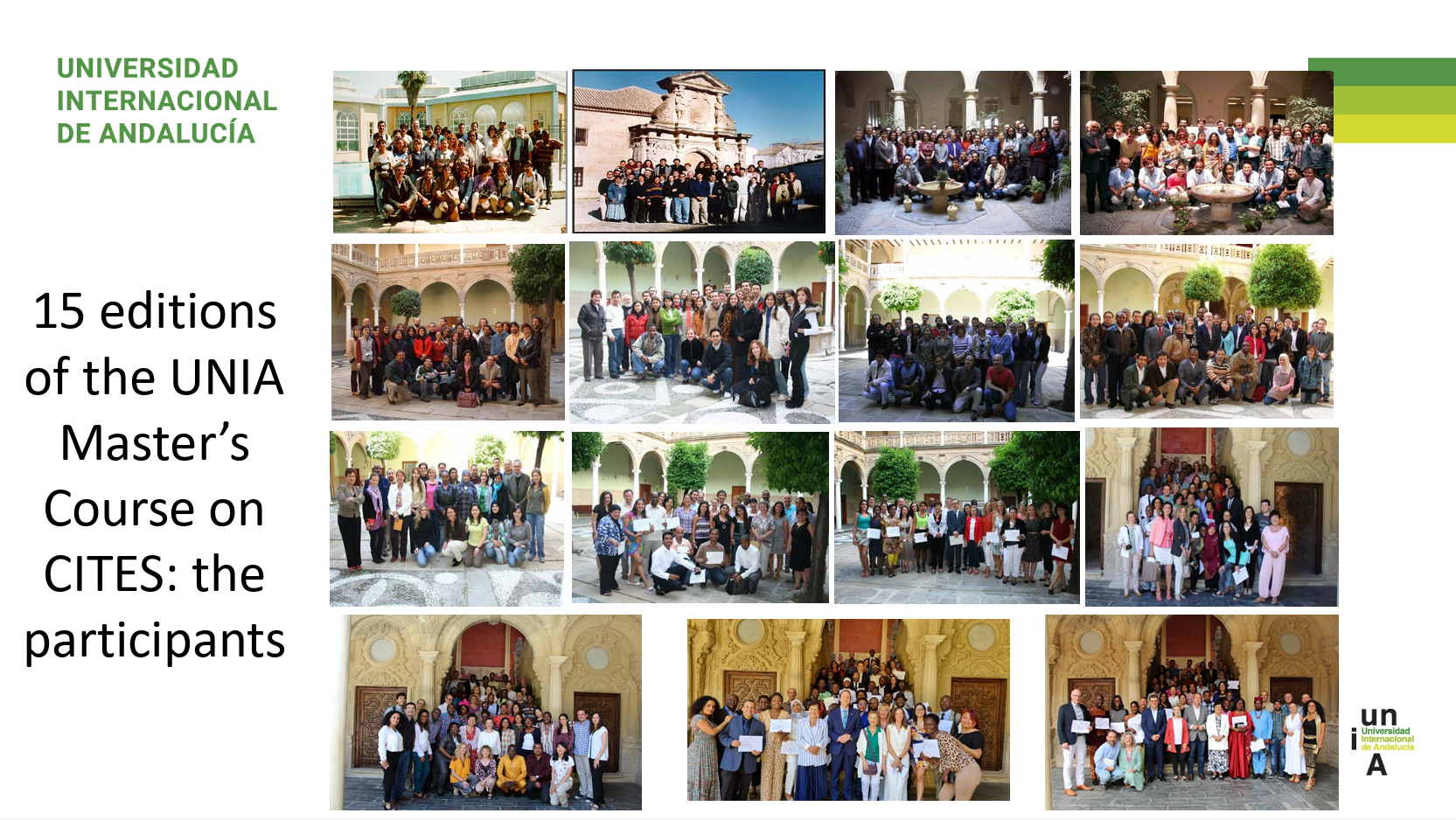
![]() The term ‘capacity building’ generally constitutes the development of activities and materials that support the acquisition of specific knowledge and skillset to better understand and implement the provisions of the Convention.
The term ‘capacity building’ generally constitutes the development of activities and materials that support the acquisition of specific knowledge and skillset to better understand and implement the provisions of the Convention.
Resolutions and Decisions
- Resolución Conf. 3.4 Cooperación técnica
- Decisiones 18.39-18.46 Fomento de capacidad
Documentos del Comité
- SC70 Doc.22.1 Capacity building needs of developing countries and countries with economies in transition: Report of the Secretariat
- SC70 Doc. 22.2 Proposed framework to facilitate coordination, transparency and accountability of CITES capacity building efforts (submitted by the United States of America)
- Also see SC70 Inf.2
Oportunidades actuales en materia de fomento de capacidad
- Máster de la UNIA – fecha límite: 30 de octubre de 2021 (preinscripción) y 16 de diciembre de 2021 (inscripción)
- IWT Challenge Fund (Reino Unido), Round 8 – fecha límite: 22 de noviembre de 2021
Recursos y oportunidades de apoyo al fomento de capacidad
- Fondo para el Medio Ambiente Mundial (FMAM) Programa Mundial para la Vida Silvestre: programa que aborda el tráfico ilegal de vida silvestre en Asia y África. Más de 30 proyectos del FMAM están incluidos en el marco del FMAM-6 y el FMAM-7.
- Fondo para el Elefante Africano: fondo fiduciario de donantes múltiples para dedicar recursos a la aplicación efectiva del Plan de Acción para el Elefante Africano (Resolución Conf. 16.9). El PNUMA presta servicios de secretaría al comité directivo del Fondo para el Elefante Africano.
- Estados Unidos: Oportunidades de subvenciones del Servicio de Pesca y Vida Silvestre de los Estados Unidos
- Universidad Internacional de Andalucía (UNIA): Máster en Gestión, acceso y conservación de especies en comercio: el marco internacional
- Universidad de Kent, Durrell Institute of Conservation and Ecology (DICE): Maestría en Conservación y comercio internacional de vida silvestre
International University of Andalucía (UNIA) Master’s Degree in Management and Conservation of Species in Trade

Organized by the International University of Andalucía (UNIA), the UNIA Master's Degree in Management and Conservation of Species in Trade. The International Framework has been running since 1998 and has provided specialized quality training on the concepts, scientific bases, techniques and instruments that enable CITES implementation to hundreds of participants from over 100 countries. Many of the course participants are CITES authority officials.
The course, held every two years, consists of an on-campus period of 11 weeks in Baeza, Spain, followed by a research period of 9 months leading to the submission of a master’s thesis. The successful completion leads to the attainment of 60 ECTS (European Credit Transfer and Accumulation System) credits and the Master’s Degree issued by UNIA, a public university in Spain.

Important dates regarding the 15th edition of the Master’s course:
- Publication of course information through Notification to Parties: mid-2025
- Pre-registration: 4 May-31 October 2025
- Formal enrolment: 15 November-16 December 2025
- On-campus period: 13 April-28 June 2026
- Virtual period: 1 February-1 September 2026
Subject to the availability of external funds, the CITES Secretariat provides limited financial support to interested CITES officials from developing country Parties. Other financial support is available from the West Africa Biodiversity and Low Emissions Development program (USAID WABiLED) for participants from West Africa.
Commemorative book "Master CITES: A success story of the Spanish cooperation (2019)"
